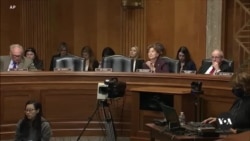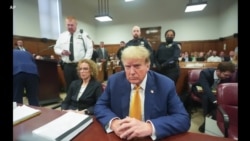President-elect Donald Trump’s choice to serve as secretary of state faced questioning from lawmakers Wednesday. Republican Marco Rubio told senators that if confirmed he would make U.S. national interest a priority. VOA Congressional Correspondent Katherine Gypson reportss from Capitol Hill.
2024 US Election
Donald Trump will be sworn in January 20 as the only U.S. president with felony convictions, and this week saw a flurry of activity over the court cases still open against him. On Friday, a New York judge is to sentence Trump in one case. VOA Senior Washington Correspondent Carolyn Presutti reports.






